Google Instant – Impact on SEO and PPC
Google launched Google Instant Search interface on the 8th of September 2010, which shows search results as you type, in real time.
Many search engine marketers (SEM), including your house-hold searchers, have reacted sharply to the new Google Instant interface. Google Instant is being sold as a faster and better User Interface, and the feedback leans in the other direction of the new interface as distracting, confusing and even annoying.
Matt Cutts from Google says that the change is more about rolling out a new User Interface (UI) rather than an algorithmic change. Matt attempted to allay the fears of the SEM industry by suggesting “SEO is not dead” but may change due to instant search query feedback to users, which in turn, may change their search behaviour. He believes that the searchers will diversify their queries within the scope of the original intent.
The effect of predicted query suggestions on user behavior
While Google claims that the Search Ranking Algorithm remains unchanged, the new feature will surely change search behaviour of users due to instant feedback mechanism. A lot of users are likely to select the predictive results, which fulfil their original intent, and stop typing further. Some users may get distracted from their original intent as ‘irrelevant but interesting’ results may lead to unintended searches. For example a user may digress into “home improvement loans” after typing “home improvement” instead of following his original intent of searching for “home improvement ideas.”
As more and more search users select “predicted query” suggestions, it would increase the traffic on the “head” keyword terms and lead to keyword aggregation. In essence, they would be searching more of what “other users” are searching. This usage trend would create a loop-back effect and drive out the long-tail keywords from the popular suggestions. Consequently, over a period of time, the long-tail keywords search count may diminish significantly. Where possible, Google is pushing local results for terms having local context like weather, pizza, movies, jobs etc.
The change in usage trend will throw new challenges to SEO & PPC professionals. They will need to focus their campaigns more on lead terms, creating a fiercer battleground.
How will PPC campaigns get impacted?
As per Google the AdWords impressions are counted in the following situations –
- The user begins to type a query on Google and clicks anywhere on the page (a search result, an ad, a spell correction, a related search).
- The user chooses a particular query by clicking the Search button, pressing Enter, or selecting one of the predicted queries.
- The user stops typing, and the results are displayed for a minimum of three seconds.
For PPC campaign managers, this is bad news. The AdWords impressions would unnecessarily increase due to ads display even during partial typing process. Ads would sometimes be displayed for irrelevant or partial keywords. For example, search intent for “Car Insurance” displays ads for “Car Rentals” just after the user has typed the word “car.” This means that the “Car Rentals” PPC campaigns will waste impressions, reducing their CTR.
Predictive query push of popular terms will diminish the long-tail keyword opportunities for PPC managers. Pressure will mount on the “head” terms of their campaigns; pushing up their CPC costs while wasted AdWords impressions will make their CTR poor. Since the CTR is likely to be affected across the board for most users, it is not clear how Google will treat the fall in the “Quality Score” of the ad campaigns.
In any case, PPC campaigns are likely to become costlier to run and the campaign managers will need to make frequent updates in their campaigns to target newer and popular keywords to keep up with the changing trends of search users. Some website owners may even consider diverting part of their PPC funds into SEO campaigns in order to get some traction of natural traffic and mitigate their long term investment risks.
How will SEO landscape change with Google Instant?
Challenges for SEO managers will not be easy. With diminishing long-tail inventory, SEO will need to focus on popular search terms, which, by no means is a mean task. Changes in SEO will also need to be made frequently, in line with the changing keyword trends. Where relevant, optimization for local search terms will help. Due to the instant display of results, fewer users will need to scroll down the page. This means that “above the fold” results will become prime property. Clients would no longer be happy with the top-10 ranking and may demand top-4 rank instead, making the SEO’s job even harder.
Gaming the Google Instant Predictive Search System
It is important to note that the predictive search suggestions of Google Instant is not about suggesting important terms, but suggesting “popular” terms. For search terms, which do not have a high search volume (or for long-tail keywords), it is easy to “game the system” by artificially inflating search terms popularity. Search terms for low-volume searches can be pushed up in the Google’s predictive suggestions. This manipulation of Google Instant was successfully tried for the term “Nathan Deal Ethics” to highlight the allegations against Nathan for corruptions.
As the dust settles down, the users will get more comfortable by evolving their own techniques of narrowing down their search queries. Perhaps over a period of time, a new usage trend may emerge. How the PPC & SEO landscape will shape up over the next one year may be difficult to predict. However, one thing seems to be clear – with one masterstroke, Google has ensured higher revenues from PPC advertisers; made SEO a lot more difficult and with increased search pattern of distracted searchers, increased their page-views (read market share.)
Ref: Red Alkemi

Leave a Reply
Want to join the discussion?Feel free to contribute!